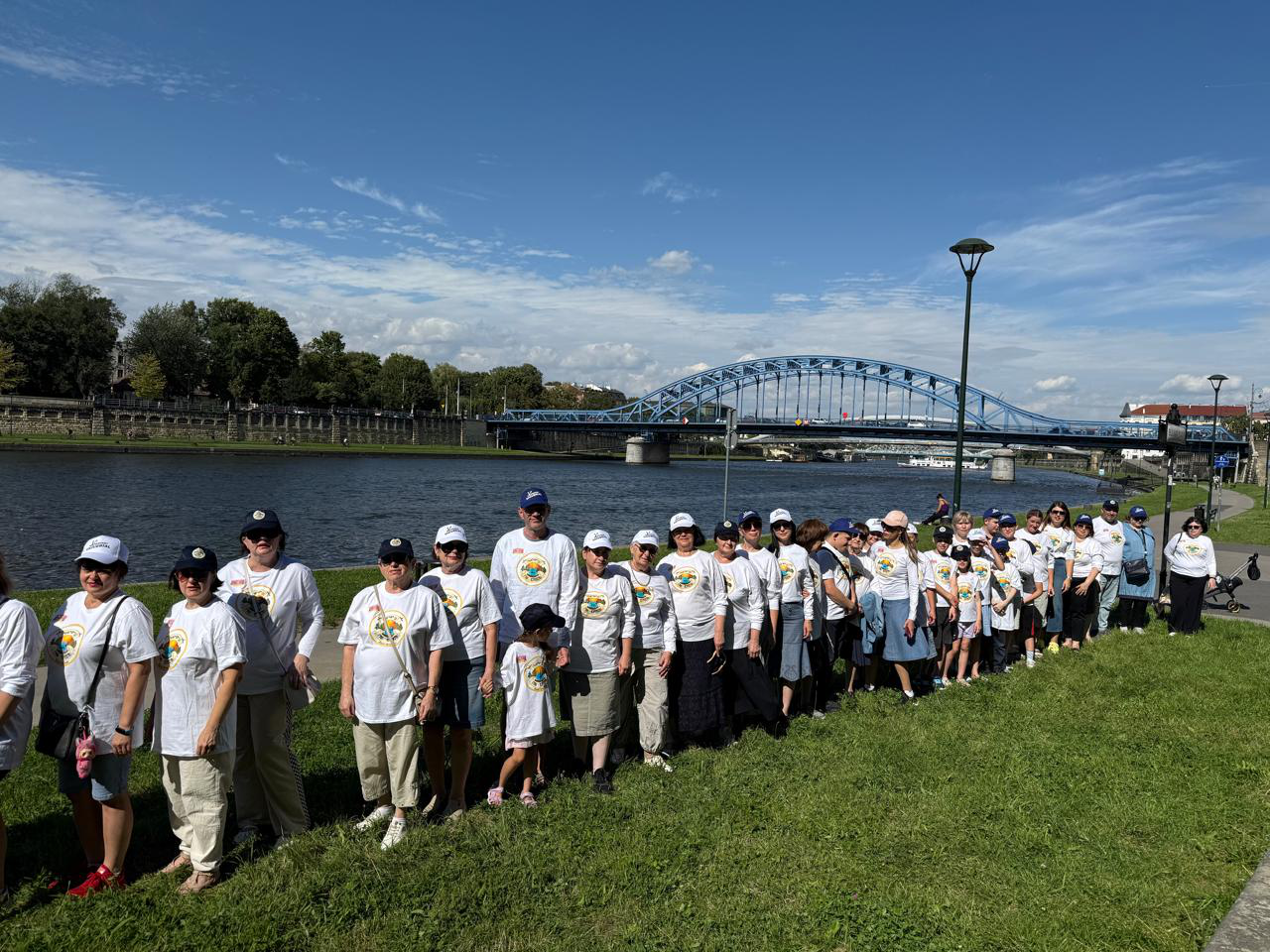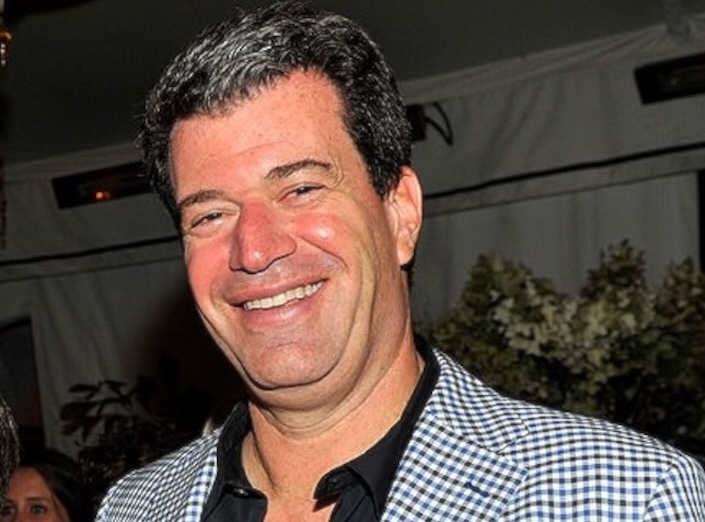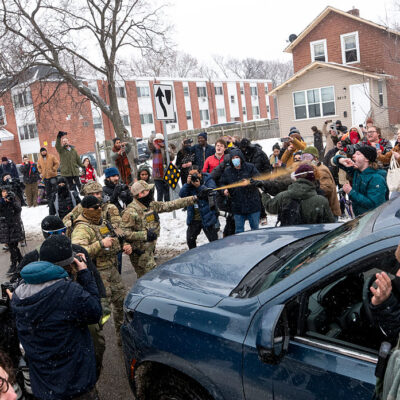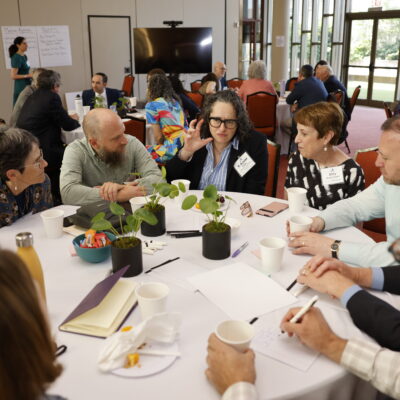Your Daily Phil: The voice of Jewish history: Remembering Rabbi Berel Wein
Good Tuesday morning.
In today’s edition of Your Daily Phil, we share reflections on the legacy of historian, writer and lecturer Rabbi Berel Wein, who died on Saturday at 91, and report on the election of hedge fund founder and philanthropist Daniel S. Loeb as chair of the Museum of Jewish Heritage’s board of trustees. We feature an opinion piece by Mark Wilf about the impact of quality time together for Israelis and Americans at Jewish summer camp. Also in this issue: William C. Daroff, Dame Stephanie Shirley and Laurie Hasten.
What We’re Watching
A report on conflict-related sexual violence, scheduled for presentation this morning to the United Nations Security Council, is expected to place Hamas under formal review for entry onto the U.N. “blacklist” of entities using sexual violence as a weapon of war.
Retired IDF Col. Miri Eisin, a senior fellow at Reichman University’s International Institute for Counterterrorism and chair of the board of the Taub Center for Social Policy Studies, will provide a briefing on the latest developments in Israel and Gaza in a Jewish Federations of North America webinar this afternoon.
The Adolph and Lotte Rosenberg Summer Retreat, a five-day retreat for Holocaust survivors over the age of 85 hosted by The Blue Card, continues at the Hudson Valley Resort and Spa in the Catskills. On the scene today: eJewishPhilanthropy’s Jay Deitcher.
What You Should Know
A pioneer in disseminating Torah lectures using the latest technology — whether that meant cassette tapes or compact discs or YouTube videos — historian and author Rabbi Berel Wein is being remembered this week by colleagues like the Orthodox Union’s Rabbi Moshe Hauer as someone who was “constantly doing and thinking and writing and reinventing,” writes eJewishPhilanthropy’s Jay Deitcher. Wein died on Saturday in Jerusalem at 91.
“He just didn’t look at the Jewish world as if he was sitting on a couch,” recalled Hauer, the OU’s executive vice president. “He felt the urgency of the moment at all times.”
More than anything, Rabbi Wein will be remembered for his embrace of technology. He first began using tapes to send his lessons through the mail during the 1980s.
“He popularized the study of Jewish history for thousands of people in a way which is incredibly engaging,” Hauer said. “He used it to bring insight to Jewish life and to contemporary Jewish life into the decisions and the crossroads that we know that we face… People ate up his lectures.”
As technology shifted, Rabbi Wein released lectures on CDs and via YouTube, published over 20 books and produced films through the Destiny Foundation, which he founded in 1996.
Because he was so revered in the Orthodox world, people who were skeptical of technology trusted him and he became an example for other religious leaders contemplating making the leap online.
“Instead of Rabbi Wein saying, well, [technology is] not good, it’s not healthy, it’s not this, it’s not that, he said, ‘These kinds of things, you could use them for really good things,’” Michael Kronenberg, treasurer at Bet Knesset Hanassi who also served as president of Congregation Bais Torah during much of Rabbi Wein’s time there, told eJP.
“By embracing the technology, we could exponentially disseminate his teachings, whether it be in Jewish history, Jewish thought, Bible studies, philosophy. Many people he never would have reached in the religious world, in the non-religious world, the secular world, he was able to reach,” said Kronenberg.
Even as his eyesight failed and he suffered health setbacks in his later years, Rabbi Wein continued to push himself. His final appearance was on July 6 in Beit Shemesh, speaking for over 45 minutes and signing autographs of his latest book, Endless Hatred: Antisemitism from the Biblical Era to Modern Times.
“He wasn’t some kind of person who was just intense and always had to be doing something by demeanor,” Hauer said. “He was very laid-back and very measured… And yet he just felt this motivation to keep doing and coming up with something else.”
NEW ROLE
Third Point billionaire Daniel S. Loeb tapped as chairman of Museum of Jewish Heritage board of trustees

Jewish philanthropist Daniel S. Loeb, the billionaire founder of the hedge fund Third Point, was tapped yesterday to chair the Museum of Jewish Heritage’s board of trustees, beginning Oct. 27, reports eJewishPhilanthropy’s Nira Dayanim. He will succeed Bruce Ratner, who has held the position since 2014.
Strong supporter: Loeb has supported causes throughout the Jewish world, focusing heavily on Jewish education in recent years. In December, he shifted funding from his alma mater, Columbia University, to Yeshiva University, donating $1 million at the school’s Hanukkah Dinner fundraiser. He also created the Loeb Scholars Program at Yeshiva University and contributed to various Hillel chapters and Chabad centers. “It is an honor to step into this role at such a fraught moment,” Loeb said in a statement. “Everywhere we look, anti-Semitism is on the rise, affirming the crucial importance of the Museum’s mission: remembrance and education, but also vigilance and pride.”
ISRAEL-DIASPORA RELATIONS
Hope in action: The transformative impact of Jewish summer camp connections

“When I recently had the privilege of visiting a Jewish summer camp in Pennsylvania, what I witnessed was far more than the typical camp joy. I saw healing. I saw unity. And I saw the future of the Jewish people, on both sides of the ocean,” writes Mark Wilf, chairman of the Jewish Agency for Israel Board of Governors, in an opinion piece for eJewishPhilanthropy.
The power of personal encounters: “The camp I visited was one of the various North American Jewish summer camps participating in the Jewish Agency for Israel’s Campers2Gether and Summer Shlichut programs… In a moment when few teens are able to visit Israel due to ongoing security and logistical concerns, Campers2Gether flips the model: Israel comes to them. Israelis go from just headlines or hashtags to human beings — young people just like them with stories and struggles, laughter and courage… The legacy that the Jewish Agency is building — one camper, one conversation, one lunch table at a time — is a network of enduring connections between Israel and world Jewry. Israeli teens who are going through immense challenges can experience, at least momentarily, a sense of normalcy at camp. American campers feel closer to Israel than ever before. These are the building blocks of Jewish continuity… When we bring our youth together — not through screens or statements, but through face-to-face, heart-to-heart connections — we create a shared future. We create resilience. We create a people.”
Worthy Reads
What the Future Holds: In The Jerusalem Post, William Daroff imagines visiting Israel a century from now. “My friend, Steven Shalowitz, hosts a podcast called ‘The One Way Ticket Show.’ In each episode, he asks his guests where they would go if given a one-way ticket, no coming back: past, present, future, real, imaginary, or state of mind… History pulls at me. I live within it, and I carry it into every room I enter. But I would not choose the past. I would choose Israel a century from today, in the year 2125. I would walk through Jerusalem to see how we carried our story forward. I would visit Tel Aviv to see what vision and innovation had become when anchored in Jewish identity. I would stand in Kiryat Shmona in the North and Nir Oz in the South and see how we rebuilt from heartbreak. I would see how we fulfilled the promise of October 8, the day after the unthinkable… I do not wonder whether we will survive. We will. We always have. However, we must do more than survive. We must thrive. We must teach, build, protect, and lead. We must pass on not only memory but purpose. We must raise a generation that knows who they are and what they carry.” [JPost]
You Can Do Better: In Inside Philanthropy, Emmy-winning producer and communications strategist Michelle Génecé Patterson identifies some common mistakes funders and nonprofits make in sharing their stories, and how to fix them. “[E]ven the most well-meaning and well-resourced foundations and nonprofits routinely trip over their own narratives. Or worse, they ignore the strategic power of storytelling entirely to focus on ‘the work.’… I’ve also seen how powerful missions can get lost in a sea of jargon, hero shots and well-intentioned misfires. So if you’ve ever stared at a blank ‘impact story’ document and wondered why your brilliant work sometimes ends up sounding like a tax return, this is for you. Communication is power. And your voice is your power. We should all be using our powers wisely at this critical time. My hope is that this list helps you begin to do just that.” [InsidePhilanthropy]
What Is It Good For: In a blog post for Candid, Jim Fruchterman highlights the potential and limitations of different uses for generative AI by nonprofits. “The more exciting — but also riskier — uses of genAI are in programs. This is a lot more challenging than asking for help with a grant proposal. In one infamous example, the National Eating Disorders Association fired all of their human helpline counselors and replaced them with Tessa, the genAI chatbot. After screenshots were shared of Tessa telling people to start counting calories, the opposite of modern practice for eating disorders, it was shut down after a week… The key elements of successful genAI uses for specific program needs are guardrails and context. Guardrails are there to stop harmful answers from getting through to community members. Context trains the genAI tool to respond based on trustworthy content from your organization or your field… You wouldn’t dream of putting an untrained volunteer into the middle of a life-or-death situation; you shouldn’t put a general-purpose genAI tool in your programs based on the false belief it knows what it’s doing. It doesn’t.” [Candid]
Word on the Street
FamilyMatters, a Jewish nonprofit serving children in need from all backgrounds, will open a new 28,000-square-foot space in Upper Merion, Pa., in early 2026 featuring emergency housing, mental health care services and a food kitchen. The location will be named for Linda and Don Brodie, who donated $12 million to the project…
The Chronicle of Philanthropy identifies regional, national and international funds responding to the needs of nonprofits impacted by U.S. federal funding cuts with grants and other assistance…
CBS News Miami spotlights the Box with a Heart program at the Michael Ann Russell Jewish Community Center, which offers boxing classes for people with Parkinson’s disease…
Rev. Johnnie Moore, head of the Gaza Humanitarian Foundation, tells Jewish Insider that police are investigating two credible death threats against him…
The Baltimore Jewish Times profiles Michael Bresler, who started a company to help Jewish organizations integrate AI solutions into their work…
Members of the American Association of Geographers are calling for the association to adopt a boycott of Israeli academic institutions…
Temple Beth-El in Great Neck, N.Y., announced a sale and leaseback agreement with Yeshivat Kol Yaakov; the temple is selling its building and leasing some of the space instead “in order to reallocate resources to prioritize Jewish education, cultural programming and community building”…
Santo Ono, the former president of the University of Michigan, is set to become the inaugural director of the Ellison Institute of Technology, a research and development center, after he was rejected as a candidate for University of Florida’s next president by the Florida Board of Governors…
In Blue Avocado, nonprofit leaders share examples of “happy accidents” that produced significant benefits for their organizations…
Madelyn Rubinstein Shapiro, former president of the women’s division of the Jewish Federation of Greater Washington and longtime board member of the Jewish Social Service Agency, died Aug. 7 at 92…
Philanthropist and IT pioneer Dame Stephanie Shirley (born Vera Buchthal) died at 91…
Major Gifts
The London-based Gerald and Gail Ronson Family Foundation is donating over $1.2 million to Israel Sci-Tech Schools, which will go toward upgrades at two ISTS schools in Ashkelon…
Transitions
Laurie Hasten is the new board chair of Prizmah: Center for Jewish Day Schools…
Kacy Spivack will succeed Marcia Gabrilove Ladin as national secretary of Hadassah, and Michelle Conwisar and Lynda Heyman will succeed Liz Alpert and Fran Feldman as the organization’s national vice presidents; all three will begin three-year terms on Jan. 1, 2026…
Pic of the Day

Ukrainian Jews participate in Chabad of Poland’s two-week summer retreat, designed to provide respite, healing and hope to families fleeing ongoing conflict. This year’s program was hosted in Krakow and supported by Mosaic United, the Jewish community of Kamianske, Ukraine, and crowdfunding from across the globe.
Birthdays

Managing partner and talent agent at William Morris Endeavor, he is active in the contemporary art world as a collector, Dan Aloni…
One of the earliest Silicon Valley venture capital investors with positions in firms like Intel and Apple, Arthur Rock… Ventura County, Calif., resident, Jerry Epstein… Past member of both houses of the South Dakota Legislature, Stanford “Stan” M. Adelstein… Retired president of Ono Academic College in Israel, she was Israel’s ambassador to the United Nations from 2008 to 2010, Gabriela Shalev… Photographer and director of television programs and movies, Neal Slavin… Professor emeritus of religion and philosophy at the University of Toronto, he is the author of 16 books, David Novak… Retired reading teacher for the NYC Department of Education, she co-founded the kosher pantry at Bethesda Hospital in Boynton Beach, Fla., Miriam Baum Benkoe… Actor and director, Adam Arkin… Gavriel Benavraham… Managing partner at Wolf Haldenstein Adler Freeman & Herz, Mark C. Rifkin… Co-founder and CEO of Apollo Global Management, he is the board chairman of the UJA-Federation of New York, Marc J. Rowan… Chairman of the FCC in the Obama administration, he is now a senior advisor at the Carlyle Group, Julius Genachowski… Executive editor of The New York Times, Joseph Kahn… Executive administrator of the Ventura, Calif., accounting firm, Morgan, Daggett & Wotman, Carolynn Wotman… District attorney of Queens, N.Y., Melinda R. Katz… Actress and producer, known for her role as Deputy Chief Brenda Leigh Johnson in the 109 episodes of the TNT crime drama “The Closer,” Kyra Sedgwick… Founder and CEO of The Friedlander Group, Ezra Friedlander… Private equity financier and a founding partner of Searchlight Capital Partners, he recently joined the board of Estee Lauder, Eric Louis Zinterhofer… Chair of the Orthodox Union and past chair of The Associated: Jewish Federation of Baltimore, Yehuda L. Neuberger… Businessman and investor, Brett Icahn… Managing partner of Handmade Capital, Ross Hinkle… Laser radial sailor, she represented Israel at the 2008 (Beijing) and 2012 (London) Olympics, Nufar Edelman… Founder and principal at Aron’s Kissena Farms and Cedar Market, Aaron Yechiel Hirtz… President at Kansas City-based Eighteen Capital Group, Isaac Gortenburg… Rapper, singer and songwriter, known by his stage name Hoodie Allen, Steven Adam Markowitz…


 Add EJP on Google
Add EJP on Google






